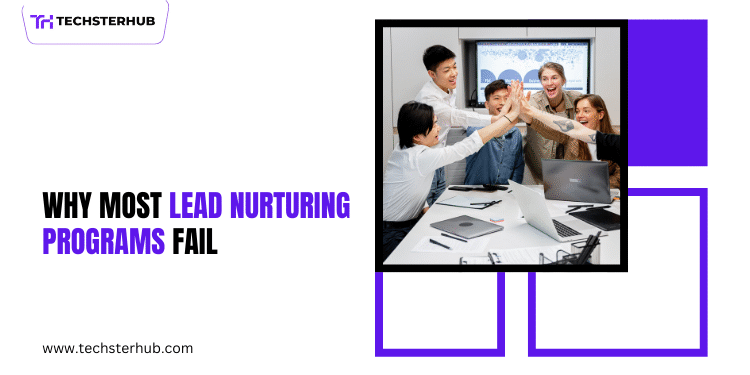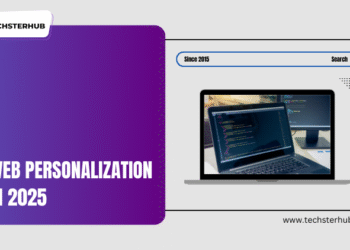Introduction: The Status of State Lead Nurturing in B2B
In 2025, B2B buyers are more digitally savvy, empowered and less impressed by B2B sales than ever before. With longer sales cycles and a greater number of stakeholders in the mix, marketers need to do more than prospect for leads – they need to engage them, educate them, and build trust over time. That’s where lead nurturing programs can be of assistance.
Today, with advanced CRMs, marketing automation platforms and content libraries, most lead nurturing initiatives seem underwhelming. Why? Because so many programmers view buyers as static leads in a funnel when actually they’re dynamic people with changing needs, expectations and behavior.
In this article, we’ll tell you why most lead-nurturing programs fail, which are the common mistakes, and how today’s market-leading B2B brands convert their buyer engagement into a strategic competitive advantage.
What Is a Lead Nurturing Model?
A lead nurturing program is a set of marketing processes that five-stage relationship with people who are not yet ready to buy. It provides valuable, targeted, and tailored content or experiences in multiple formats including:
- Email sequences
- Retargeting campaigns
- Web personalization
- Webinars and virtual events
- Sales enablement content
The prospect of purchasing your specific product or service almost always involves multiple stages of the buyers’ awareness, consideration and decision-making processes, and the overall aim is to help buyers take the next possible step towards conversion without putting them under pressure to act too early.
According to Demand Gen Report, nurtured leads lead to a 20% boost of sales opportunities over non-nurtured leads. Why for the most part are programs still off the mark?
So why do most programs still miss the mark?
Why Most Lead Nurturing Programs Fail
1. One-Size-Fits-All Messaging
Many B2B nurturing programs use generic email drips talking to “everyone” and calling to no one. Without explicitly segmenting their audiences – according to industry, job role, depth of the funnel and so on – content becomes hard to connect with.
Fix: Use intent data, CRM data, and firmographic segmentation to personalize every interaction. Marketo and HubSpot can achieve more sophisticated segmentation using behavioral and demographic data.
2. Failure to Develop Buyer-Centric Content Strategy
A successful lead-nurturing program requires more than emails. It involves having content staged for the buyer’s pain points and journey stages. Many brands only sell product brochures or bottom of the funnel content and therefore fall short of their own goals.
Fix: Develop a content plan for the full funnel that includes:
- Educational blog posts (awareness stage)
- Case studies and webinars (consideration stage)
- ROI calculators, demos, or testimonials (decision stage)
Download our guide to B2B content strategy and align your content with buyer intent.
3. Areas of Misalignment between the Sales and Marketing Teams
In many organizations, the sales and marketing teams work in siloes. This disconnects results in poor handoffs, inconsistent messaging and lost opportunities.
Fix: Use a collective lead scoring model, define clear MQL – SQL scores, make sure marketing qualified leads are sales ready. Integrate both departments with Salesforce to link processes and make pertinent information visible to both parties.
4. Failure to Address Buyer Signals and Behavior
Traditional lead nurturing is carried out with predetermined cadences. Today’s buyers have left their digital footprints, whether they are clicks, downloads, revisits or session duration, that provide a clue to what they care about.
Fix: Replace using time-based nurturing with behavior-based nurturing through tools like ActiveCampaign and Pardot. This allows the sales team to react in real time to buyer intent.
5. Over-Reliance on Email Alone
Notwithstanding, email remains a channel of importance, but relying on it only makes citizens less reachable. Open rates are low, and competition from the inbox is strong.
Fix: Expand your nurturing touchpoints across:
- Retargeting ads (LinkedIn, Google)
- SMS or mobile push (for existing users or trials)
- Personalized landing pages
- Conversational chatbots
Drift or Intercom provide real-time, personalized conversations with increased engagement.
6. Lack of Metrics for Measuring and Optimizing
Without performance measurement, nurturing programs will not improve. If you are not recording engagement, conversion, or influence on pipeline you are guessing.
Fix: Measure KPIs like:
- Email engagement (open, click, reply)
- MQL to SQL conversion rate
- Lead velocity
- Time-to-close
- Revenue influenced by nurturing campaigns
This is why using Google Analytics 4, or Bizible for attribution modeling that connects nurture efforts to revenue is beneficial.
How to Create a High-Performance Lead Nurturing Program in 2025
Successful B2B brands prioritize these principles and make them the foundation for providing ROI and real buyer interaction.
1. Create Audience Buying Personas and Buying Stages
Create detailed buyer personas from the following:
- Job titles
- Pain points
- Goals
- Decision-making criteria
- Preferred content formats
Then chart out what they need at each stage of the process. (Related: How to Map Content to Buyer Journeys).
2. Segment and Personalize at Industry Scale
Use Dynamic enhancement to build journeys customized by:
- Industry
- Buying stage
- Engagement level
- Firmographic attributes (company size, revenue, etc.)
Personalized encounters increase engagement by more than 80 per cent, as per McKinsey & Company.
3. Use Content Hubs and Web Personalization to guide Retargeting
Move away from stuck landing pages. Personalize call to action (CTA) buttons, home page banners and content recommendations for each segment of your visitors.
This should hit content hubs that provide curated content based on the role of the buyer and their stage of the journey.
4. Provide Contextual Content and Alerts to Empower Sales
Empower your sales team with:
- Lead Activity information (Downloads, visits, mentioned content)
- Timely alerts when leads are sales-ready
- Content assets tailored for specific objections or stages
Platforms like Highspot have made it easy to follow content alignment to re-alignment within real-time sales conversations.
5. Test, Optimize, and Automate
Run A/B tests on:
- Subject lines
- Email copy and CTAs
- Send times
- Content formats
Inject Scale Automation to Keep Winning Workflows and Not Be Forgotten
Real-World Example: How SaaS Leader Doubled Conversions
Rapidly growing B2B SaaS vendor initiates behavior-based nurturing journey with HubSpot They:
- Segmented leads by industry and funnel stage
- Triggered emails based on content engagement
- Personalized landing pages for each vertical
- Integrated CRM data for real-time handoffs to sales
Result: 2x MQL → SQL conversion rate and a 35% reduction in sales cycle length.
Conclusion: The competitive edge is now Buyer Engagement
A lead nurturing program isn’t about driving leads through a pipeline – it is about building trust, relevancy and engagement over time. Also in 2025, the winning brands move from static nurture to dynamic buyer engagement at the right pace throughout the sales journey.
By getting content and technology – and your teams – to work for the buyer, you turn nurturing from a campaign to passively wait for leads to a strategic growth engine.
Need more information on data driven engagement and web personalization? Read our blog How Leading B2B Brands Win with Web Personalization in 2025.











